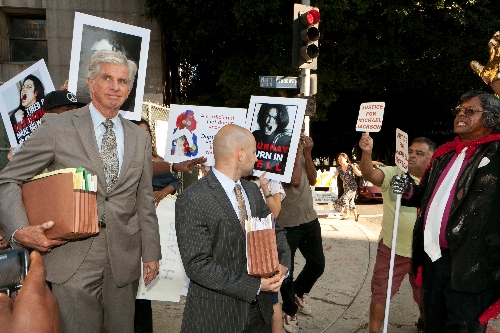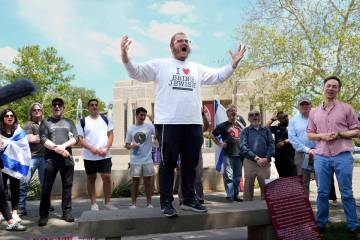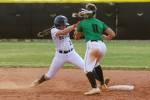Guard: Jackson doctor collected vials
LOS ANGELES -- One of Michael Jackson's bodyguards had barely stepped into the singer's bedroom when he heard a scream. "Daddy!" Jackson's young daughter cried.
A few feet away, the singer lay motionless in his bed, eyes slightly open. His personal doctor, Conrad Murray, was trying to revive him when he saw that Jackson's eldest children were watching.
"Don't let them see their dad like this," Murray said, the first of many orders that bodyguard Alberto Alvarez testified Thursday that he heeded in the moments before paramedics arrived at Jackson's home in June 2009.
What happened next -- after Alvarez said he ushered Jackson's eldest son and daughter from the room -- is one of the key pieces of prosecutors' involuntary manslaughter case against Murray.
According to Alvarez, Murray scooped up vials of medicine from Jackson's nightstand and told the bodyguard to put them away. "He said, 'Here, put these in a bag,' " Alvarez said.
Alvarez complied. He placed an IV bag into another bag, and then Murray told him to call 911, Alvarez testified.
On the third day of the trial, prosecutors tried to show that Murray, who has pleaded not guilty, delayed calling authorities and that he was intent on concealing signs that he had been giving the singer doses of the anesthetic propofol.
Alvarez said he thought Murray might be preparing to take the items to the hospital but didn't question him.
The bags never made it to the hospital, and prosecutors allege Murray repeatedly lied to emergency personnel and did not tell them he had been giving Jackson doses of the drug as a sleep aid.
If convicted, Murray, 58, a Houston cardiologist who has an office in Las Vegas, could face up to four years in prison and lose his medical license.
Defense attorney Ed Chernoff questioned whether there was enough time for Alvarez to shield Jackson's children, survey the room and stow away the drugs in the brief period that phone records show he was in the home before calling emergency responders.
Alvarez insisted there was, telling the attorney, "I'm very efficient, sir."
Chernoff was not convinced, questioning whether 30 seconds was enough time for the dramatic sequence to play out. Alvarez assured him it was.
The defense attorney also challenged Alvarez's recollection, asking whether the collection of the vials happened after paramedics had come and whisked Jackson to a nearby hospital. Alvarez denied it happened after he called 911.
Chernoff questioned why Alvarez didn't tell authorities about Murray's commands to bag up the medication immediately after Jackson died, but instead waited until two months after the singer's death. The bodyguard said he didn't realize its significance until seeing a news report in late June in which he recognized one of the bags detectives were carrying out of Jackson's mansion.
After hanging up with dispatchers, Alvarez said he performed chest compressions on Jackson while Murray gave the singer mouth-to-mouth resuscitation. The doctor said it was his first time performing the procedure. " 'I have to,' " Alvarez recalled Murray telling him, " 'because he's my friend.' "
Today, jurors are expected to hear from two paramedics who were dispatched to Jackson's mansion.
Prosecutor David Walgren asked whether anything good had happened to Alvarez from his experience in Jackson's bedroom. "No sir," Alvarez said.
Media outlets offered him up to $500,000 for interviews, but Alvarez said he refused. "It's caused a lot of financial problems," he said, starting to choke up. "I went from a great salary to hardly anything."




























